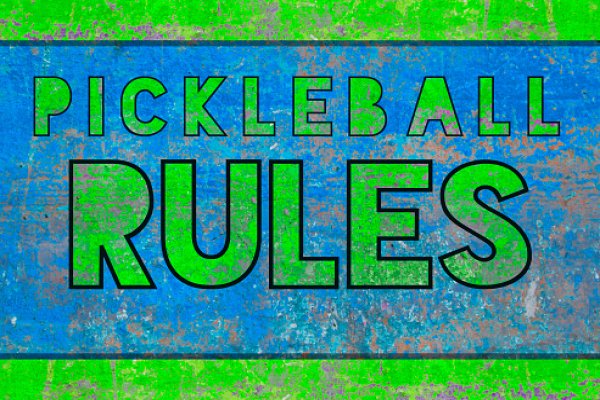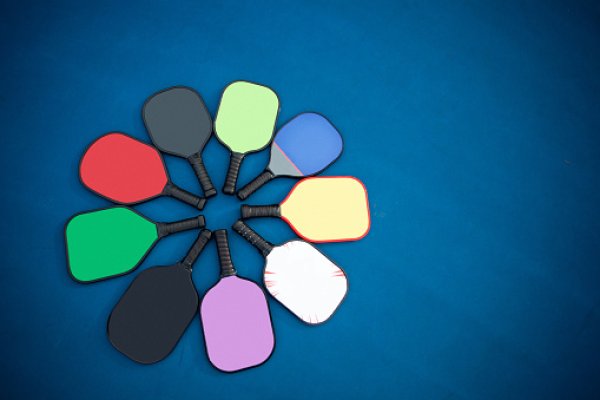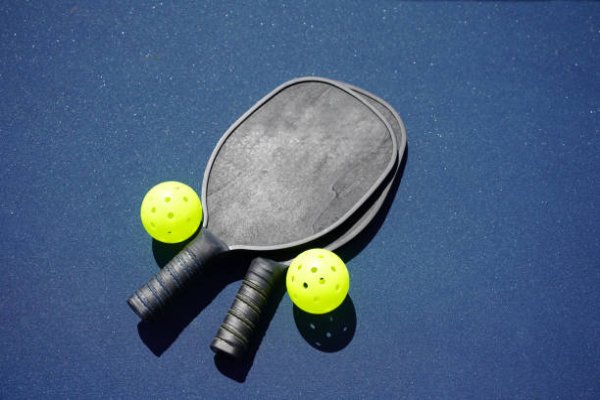Pickleball’s popularity is skyrocketing, and with it, the demand for qualified instructors. If you’re passionate about this fast-paced game and dream of teaching others, getting certified is your first step.
The journey to becoming an official pickleball instructor might seem daunting at first glance. But don’t worry, we’ve got you covered. With a clear path and the right guidelines, you’ll be on your way to turning your passion into a profession.
Whether you’re a seasoned player or a newcomer eager to dive into teaching, understanding the certification process is crucial. Let’s explore the guidelines and what it takes to earn your stripes as an official pickleball instructor.
Importance of Pickleball Instructor Certification
In recent years, pickleball has not only grown in popularity as a fun and accessible sport but has also seen a surge in those wanting to teach it. Certification to become an official pickleball instructor plays a crucial role in this burgeoning field. It guarantees that instructors are equipped with the necessary skills and knowledge to teach players effectively, fostering a safe and productive learning environment.
Certification ensures that instructors understand the intricacies of the game thoroughly, including its rules, strategies, and techniques. This deep understanding is vital for breaking down the game into digestible parts for beginners and for refining the skills of more experienced players. Certified instructors stand out as professionals who have committed to their development and to maintaining high teaching standards.
Moreover, liability is a significant concern in any sport, and being certified can offer legal protection. Certified instructors are usually required to complete safety training programs, including first aid and CPR, as part of their certification. This preparation not just minimizes the risk of injuries on the court but also assures students and facilities that they’re in capable hands.
The credibility that comes with certification cannot be overstated. It signals to prospective students and employers that the instructor has been vetted and approved by a reputable governing body. This level of trust is essential in building a student base and securing positions at sought-after venues.
From a financial standpoint, certification can open doors to more lucrative opportunities. Facilities and students are often willing to pay more for lessons led by certified instructors, recognizing the value of their specialized training and expertise. The demand for qualified instructors is on the rise, and those who are certified have a distinct advantage in the competitive job market.
For individuals passionate about pickleball and teaching, certification is the logical next step in their career. It not only enriches their understanding and love of the game but also solidifies their reputation as committed and knowledgeable professionals. Whether they’re just starting in the field or looking to enhance their credentials, the journey to certification is an investment in their future success as instructors.
The process of becoming a certified pickleball instructor includes several steps, from acquiring a solid foundation in playing pickleball to completing specific coursework and passing a comprehensive exam. Each step is designed to build upon the last, ensuring that by the end of the process, the instructor is thoroughly prepared to teach at a high standard.
Eligibility Requirements for Certification

Before diving into the world of pickleball instruction, aspiring coaches need to meet specific eligibility criteria set by certifying organizations. These requirements are designed to ensure that all instructors have a foundational level of skill and understanding of the game, which is crucial for teaching effectively and safely.
First and foremost, age is a key factor. Candidates must be at least 18 years old to apply for certification. This age requirement ensures that instructors have the maturity and life experience needed to manage a class and handle the responsibilities that teaching entails.
Another critical requirement is playing proficiency. While certification programs focus on teaching skills, they also require candidates to have a solid grasp of pickleball gameplay. Many certifying bodies require a skill level rating, typically around 3.5 to 4.0, based on the pickleball rating scale from 1.0 (beginner) to 6.0 (professional). This ensures that instructors not only talk the talk but can also walk the walk.
In addition to skill and age, prospective instructors must have:
- A high school diploma or equivalent
- Current CPR and First Aid certifications
- A completed background check
These requirements highlight the importance of having a basic education level, being prepared for emergency situations, and ensuring the safety of all participants in a pickleball class.
The certification process also involves a series of instructional courses, both online and in-person, capped off by a comprehensive exam. These courses cover a wide range of topics, from the fundamentals of pickleball and advanced playing techniques to teaching methodologies and student assessment strategies.
Furthermore, some certifying organizations might require candidates to have previous coaching experience, whether in pickleball or another sport. This experience doesn’t have to be extensive but having spent some time in a coaching role can significantly benefit candidates as they work through their certification courses.
It’s also worth noting that the certification process is not solely about meeting these initial requirements. Ongoing education and recertification are often required to ensure that instructors stay up-to-date on the latest teaching practices and pickleball developments. Staying engaged in the pickleball community, attending workshops, and continuous learning are just as important in maintaining certification and delivering high-quality instruction.
Choosing the Right Certification Program

When embarking on the journey to become a certified pickleball instructor, selecting the right certification program is crucial. This decision impacts not only the quality and relevance of the training but also the opportunities available post-certification. Prospective instructors should consider several factors to ensure they choose the program best suited to their needs and goals.
Key Factors in Program Selection
- Accreditation: Look for programs accredited by recognized pickleball or sports organizations. Accreditation ensures the program meets high educational and ethical standards.
- Curriculum Content: Evaluate the depth and breadth of the curriculum. It should cover all necessary aspects of pickleball instruction, including techniques, strategies, rule enforcement, and player safety.
- Flexibility: Consider the flexibility of the program regarding scheduling and location. Online options may be more convenient for some, while others might prefer in-person sessions for hands-on experience.
- Cost: Programs vary in price. Assess the cost against the benefits received from the certification. Don’t forget to factor in any additional expenses such as travel, accommodations, and required equipment.
- Instructor Expertise: Instructors should have a proven track record of both playing and teaching pickleball at a high level. Their experience enriches the learning experience and provides invaluable insights into becoming a successful instructor.
Research and Recommendations
Before making a final decision, prospective instructors should conduct thorough research. Reading reviews, talking to current professionals in the field, and reaching out to certifying organizations can provide a clearer picture of what each program offers. Recommendations from experienced instructors can be particularly beneficial as they can share first-hand experiences about the programs’ strengths and weaknesses.
Considerations for Career Goals
The chosen certification program should align with the instructor’s career goals. Some programs may specialize in competitive coaching, while others might focus more on community and recreational teaching. Instructors looking to work with specific populations, such as children or seniors, should ensure the program offers specialized training that meets these needs.
Understanding these factors and carefully evaluating each option will help prospective instructors find a certification program that not only meets their immediate educational needs but also supports their long-term career aspirations in the growing sport of pickleball.
Core Components of the Certification Process

When embarking on the journey to become a certified pickleball instructor, understanding the core components of the certification process is crucial. This journey involves several key steps, each designed to ensure that candidates are well-prepared to coach players at various levels, from beginners to advanced competitors.
Comprehensive Training
One of the first steps in the certification process is undergoing comprehensive training. This training typically covers a broad range of topics essential for every instructor:
- Rules and Regulations of Pickleball: A deep dive into the official rules, ensuring instructors can teach and enforce them during play.
- Techniques and Strategies: Covering both foundational and advanced playing techniques, as well as tactical strategies for singles and doubles play.
- Safety and Injury Prevention: Educating on best practices to maintain player safety on the court and methods to prevent common injuries.
- Lesson Planning: Guiding prospective instructors on how to design and execute effective lesson plans tailored to various skill levels.
Practical Experience
Gaining practical experience is another critical component. Candidates are often required to accumulate a certain number of coaching hours under the supervision of a mentor or a senior instructor. This hands-on experience allows them to apply their knowledge in real-world settings, hone their teaching skills, and receive constructive feedback.
Certification Examination
Following training and practical experience, candidates must pass a certification examination. This exam usually has both written and practical components, assessing:
- Knowledge of rules and teaching methodologies
- Ability to devise and conduct a lesson
- Competence in demonstrating and correcting techniques
Continuous Education
The quest for knowledge doesn’t end with certification. Continuous education is a core component of the certification process, emphasizing the importance of staying updated with the latest developments in the sport. Many certification programs require instructors to complete additional training or attend workshops regularly to maintain their certification status.
Networking and Support
Becoming part of a community of pickleball instructors offers invaluable networking and support opportunities. Certification programs often provide access to forums, online resources, and events where instructors can share experiences, learn from each other, and stay connected to the broader pickleball community.
Maintaining Certification Over Time

Once an instructor has achieved their pickleball certification, the journey doesn’t end there. Maintaining certification is key to ensuring that they are always at the top of their game, both in terms of knowledge and teaching skills. This continuous commitment demonstrates a dedication to providing the highest quality training to students.
Continuous Education
To keep certification current, instructors are required to engage in continuous education. This can come in various forms, including:
- Attending workshops: These are often held by pickleball organizations and are a great way to stay informed about the latest developments in the sport.
- Online courses: Convenient and flexible, online courses allow instructors to learn at their own pace and according to their own schedules.
- Annual conferences: These events are not only educational but also offer a fantastic opportunity to network.
Continuous education ensures that instructors remain knowledgeable about the latest rules, techniques, and teaching methods. It’s not just about retaining certification; it’s about being the best instructor possible.
Recertification Process
The recertification process varies by organization, but generally, instructors need to demonstrate their ongoing commitment to their professional development. This may involve:
- Submitting proof of continuous education
- Completing a specific number of teaching hours
- Passing a recertification exam
It’s advised that instructors keep detailed records of all their professional development activities to simplify the recertification process.
Networking and Community Engagement
Networking within the pickleball community is not only beneficial for learning and sharing knowledge; it can also play a crucial role in maintaining certification. Engaging with other instructors and participating in community events can lead to mentorship opportunities and collaborations that enrich the instructor’s own teaching practice and understanding of the game. Being active in the community is seen as a component of an instructor’s ongoing professional development.
Networking platforms include:
- Local and national pickleball associations
- Online forums and social media groups
- Pickleball tournaments and events
Through these platforms, instructors can discuss teaching strategies, share experiences, and keep each other motivated. This sense of community helps to foster a dynamic and supportive environment for both professional growth and the enhancement of the sport.
Conclusion
Embarking on the journey to become a certified pickleball instructor is both exciting and demanding. It’s not just about earning that initial certification but also about embracing a path of lifelong learning and community engagement. By actively participating in continuous education, instructors ensure they’re at the forefront of the game, offering the best to their students. Networking isn’t just a professional obligation; it’s a chance to be part of a vibrant community that supports each other’s growth and the sport’s evolution. So here’s to taking those steps, big and small, towards not just being a certified instructor but a beacon of knowledge and inspiration in the pickleball world.














0 Comments